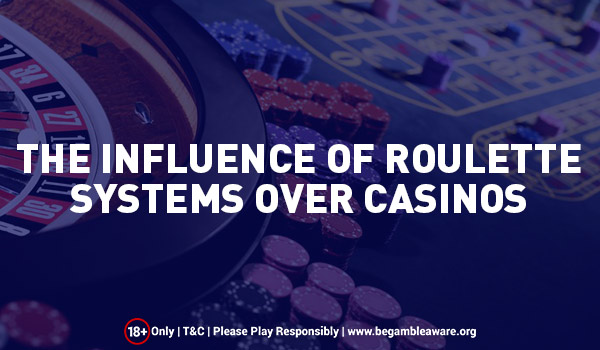Roulette is a highly competitive casino game that is still enjoyed by millions of fans around the world. The game beholds a highly competitive stature. A number of Roulette systems and strategies have been developed by players in order to maximise their chances of winning substantially through the game. However, what most players fail to recognise is that any Roulette system is never a fool-proof strategy to win in a game. Instead, such strategies only enhance the winning prospects of the player by decreasing the house edge to as low as possible. Thus, casinos have developed their own strategies to curb this disadvantage as well.

Do Roulette System Guarantee A Win Always?
Contrary to popular belief, Roulette system never confirms a guaranteed win for any player. They only allow the player to lower the house advantage. However, casinos are efficient enough to recognise this loophole as well. If it were so easy for players to win every time by lowering house edge, casinos would be losing money for most of the times.
Since the game involves an element of chance, an essence of probability always retains in any game of Roulette. Thus, there is no guarantee that the Roulette system would always ensure that the probability is always in favour of the player.
What are the Different Types of Roulette Strategies Adopted by Players?
Roulette system and strategies have been developed by players to enhance their winning chances. They are fine-tuned and adjusted all the time in order to make them more adept in their implementation in a game of Roulette. Some of the most basic and established strategies include:
· The Martingale system – Where the consecutive bet value is doubled after every loss, in order to compensate for the previous loss experienced in the round.
· The Paroli system or the Reverse Martingale – Where the consecutive bets are doubled after every win, which is deemed to be safer than the aforementioned strategy.
· D’Alembert system – Where the player might not win many times, but when he or she does, it will be substantial enough to compensate for all the investments made.
· Fibonacci system – Where the bet sequences are increased based on the Fibonacci series, after every consecutive loss or win.
There are lot many other systems. However, it is also beneficial to understand and to categorise the aforementioned strategies under one umbrella of terminology. For example, Martingale and Paroli betting systems fall under ‘Steep progressions’. D’Alembert falls under ‘Flat Progressions’ while Fibonacci falls under Mathematical sequences.
What is ‘Non-Progressive Betting’?
These strategies allow the player to make a decision with regards to sticking to the same bet value throughout the game. The bet value is increased or decreased based on the outcomes described in the strategy. For example, splitting of bets.
Why do no Strategies Offer A Fool-Proof System Of Winning?
Apart from the fact that Roulette is a game of chances, casinos sometimes limit players on the basis of what all strategies they can implement in the game. While most can be implemented, some strategies that impose lesser chance for the casino to win might be banned from implementation on the venue as well.